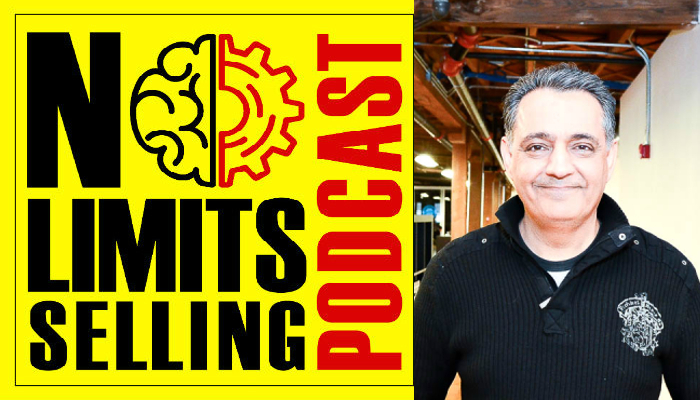The Psychology of Salespeople by Umar Hameed
Have you wondered what separates A-players from the B-players in a sales organization?
A-players are few in number and they generate a lot of sales. B-players know how to sell but never achieve greatness. The question is what blocks B-players from being exceptional, it's Mindset. This podcast is about the psychology of salespeople.
Podcast Highlights:
- We have anywhere from 50,000 – 100,000 beliefs that define who we are
- Our beliefs control our behaviors, So to change a behavior you have to change the underlying belief
- Mind training is the new frontier in sales enablement

Contact Umar:
[EDITOR’S NOTE: This podcast is sponsored by No Limits Selling. It is a fun, fast-paced podcast that delivers hard-fought business advice that you can implement today to improve your sales and performance]
Interested In Our Real Estate Coaching Services? Explore Our Website: Link
Feeling Not Well Today? You Can Use Our Mindset Boosters App To amp Up Your Mood: Link
Find us on Social Media:
LinkedIn | Facebook community | Instagram
Like what do you listen to? Subscribe to our podcast!
Ready to become fearless? We can help you become fearless in 60 days so you accomplish more in your career Schedule A 15 min Call with Umar
Summary
Introduction
Umar Hameed, the host of the No Limits Selling Podcast, discusses the psychology behind salespeople and the importance of mindset in achieving sales success.
The Power of Mindset
Umar shares a story of a successful salesperson who felt blocked from achieving higher sales figures despite his capabilities. Through a technique from neuroscience, Umar helped him identify a limiting belief from his childhood that affected his self-worth and sales performance. Once this belief was addressed, the salesperson's performance improved dramatically.
The Importance of Mindset in Sales
Umar emphasizes that mindset plays a crucial role in sales performance. He shares an experience from a conference where sales managers identified two main areas where salespeople struggle: getting appointments and closing deals. Despite billions spent on sales training, many still struggle due to mindset barriers.
Sales Performance Categories
Salespeople can be categorized into A players (exceptional), B players (good but not great), and C players (placeholders). The skills between A and B players are almost identical, but the difference lies in mindset. A players possess more drive, determination, and tenacity.
The Psychology of Salespeople
Umar delves into the human psyche, explaining that our beliefs, formed mainly during childhood, shape our worldview and behaviors. To change behaviors effectively, one must address the underlying beliefs.
Three Main Barriers to Sales Success
Umar delves into the intricate psychology of salespeople, highlighting a salesperson who, due to a limiting belief formed in childhood, found it challenging to ask for referrals. He also shares the story of a woman who faced inconsistent performance because of her inner conflict regarding her sales capabilities. Furthermore, he discusses a salesperson conditioned to avoid cold calling because of negative associations, but with the help of Neuro-Linguistic Programming, this response was transformed to encourage positive actions.
Conclusion
The future of sales lies in mind training. With advancements in neuroscience, there's a deeper understanding of the human brain, allowing for more effective training methods. Umar encourages listeners to explore mind training as a tool to enhance sales performance and invites them to his website for free resources.
Questions & Answers
Who is Umar Hameed?
What is the main focus of this particular podcast episode?
How does mindset impact sales performance?
How can one overcome these barriers?
How does Umar's approach differ from traditional sales training?
Why is mind training considered the new frontier for sales?
Don’t miss this opportunity to transform your real estate career with one-on-one coaching. As an experienced real estate coach, I, Umar Hameed, am dedicated to helping you unlock your full potential and achieve your real estate goals. To learn more about who am I and my clients ↓
If you’re ready to take the next step, book an appointment with me today and begin your journey toward success in the real estate industry.
